Beach Clean-ups, Learning Exchanges, and Social Media Influencers – A Plastics Affair
December 9, 2022
We have heard it time and again—the plastic crisis is too complex for any one person, organization, or country to solve on their own. Every single person has a role to play in ending plastic pollution. Globally, the UNDP Accelerator Labs work to unearth and highlight grassroots innovators, including them in development spaces, and changing the idea of who ‘experts’ are by highlighting the wealth of local knowledge that can be harnessed to inform policies and global development challenges.
The UNDP Pacific Accelerator Lab in Fiji, in partnership with the Pacific Tourism Organisation (SPTO), tested the power of youth, women, and social media in influencing behaviour change for more conscious use and disposal of plastics.
Beach Clean-up and Tree Planting Initiative
First up was a beach clean up and tree planting initiative which brought together government partners – Ministry of Forestry and Ministry of commerce, Trade, Tourism and Transport, SPTO and UNDP Pacific staff, and high school students from the Scared Heart College. The initiative began with an hour-long clean-up of the Suva foreshore, where participants collected over 50 large bags of litter, including plastic bottles, food packaging, discarded fishing gear, plastic containers, and plastic construction netting.
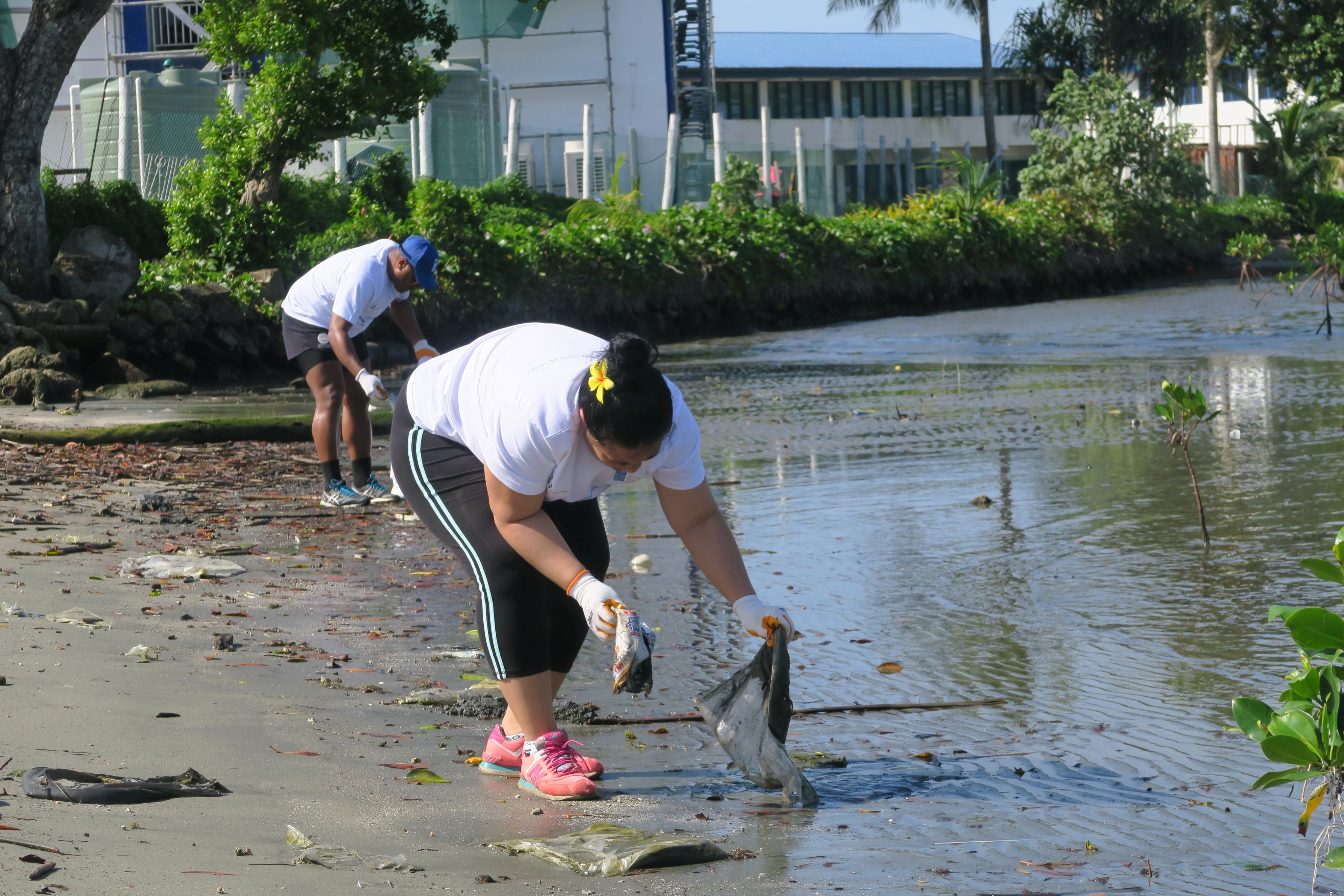
Participants find plastic waste all along the foreshore.
The team also worked with a popular local comedian, entertainer, and social media influencer—Shermont Flair— to raise awareness on the alarming amount of plastic pollution entering our oceans. During the clean-up initiative Shermont filmed a TikTok video along the foreshore indicating the ocean of plastics we would be swimming in if we did not clean up our act. The TikTok video attracted over 91, 000 views and received comments appreciating the creative way of highlighting the urgency of the plastic crisis that we are facing.
The second half of the initiative focused on regeneration and giving back to our planet earth to counteract some of the harm caused by plastic pollution. With the Ministry of Forestry’s support, participants were able to plant 400 tree seedlings, consisting of local fruit trees—guava and kavika (rose apple), mahogany, and sandalwood.
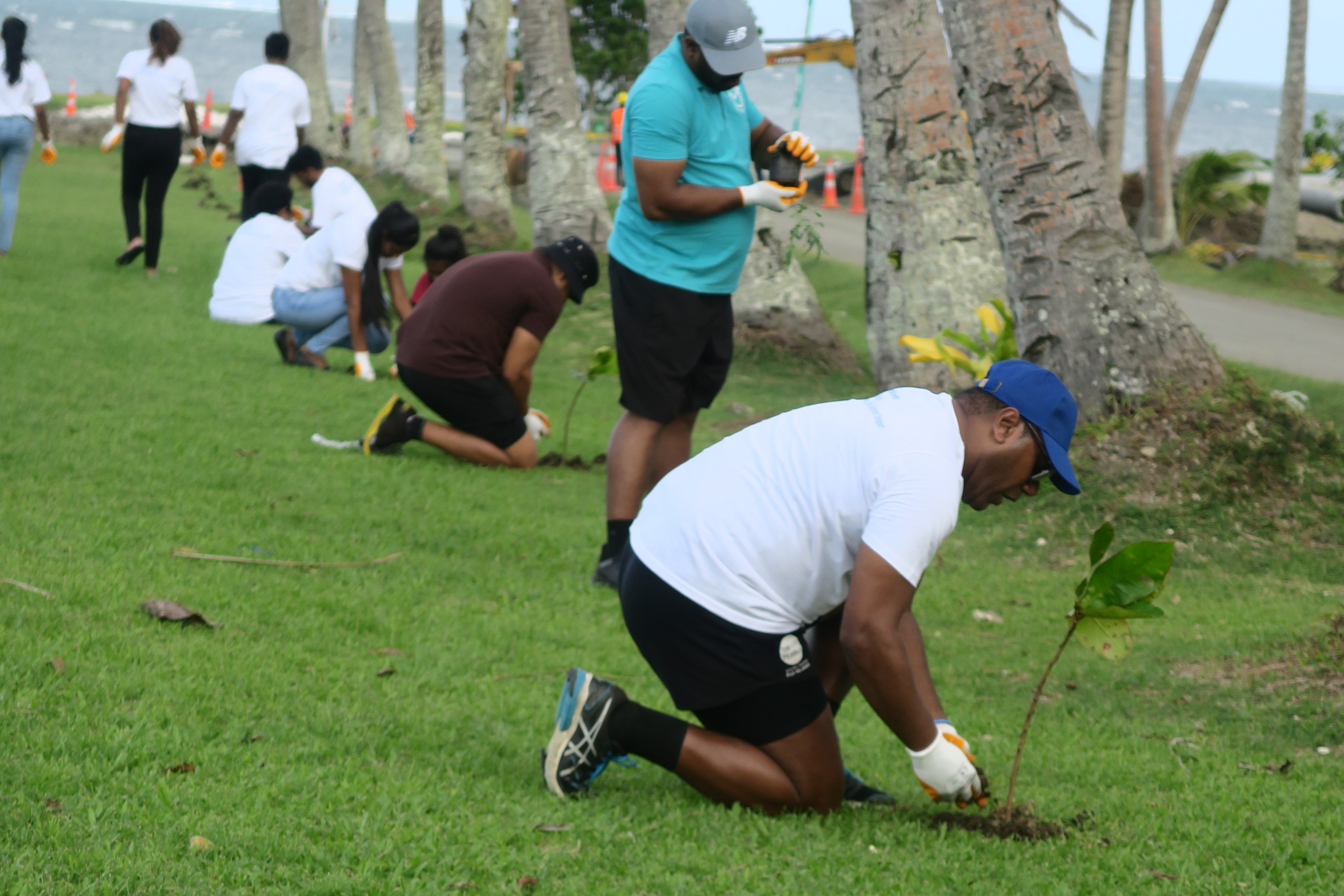
Participants planted over 400 trees.
Through this initiative, participants were able to get a firsthand experience at seeing how real the plastics crisis was and a new perspective on the making more conscious daily choices when it comes to plastic use. To keep the movement going, participants called out to other organizations and schools to take up the challenge and do their part in ‘cleaning up’ their act.
Learning exchange—women and youth
Too often women and youth are left out of critical discussions and spaces that concern their future, health, well-being, and development. Women and youth hold great power in influencing their communities and can be effective agents of change when given the space to utilize their full potential.
The SPTO and the UNDP AccLab Fiji held a learning exchange to highlight the important work done and skills possessed by the two groups, creating a space where this knowledge and skills can be shared to influence, inspire, and empower each other.
Through this learning exchange, a group of women from Galoa village demonstrated how they have been turning plastic waste into upcycled handicrafts to keep plastic waste out of the environment and ocean while simultaneously generating income for themselves and their families. Some of the youths were very keen to develop their skills in upcycling plastic waste into arts and handicrafts.
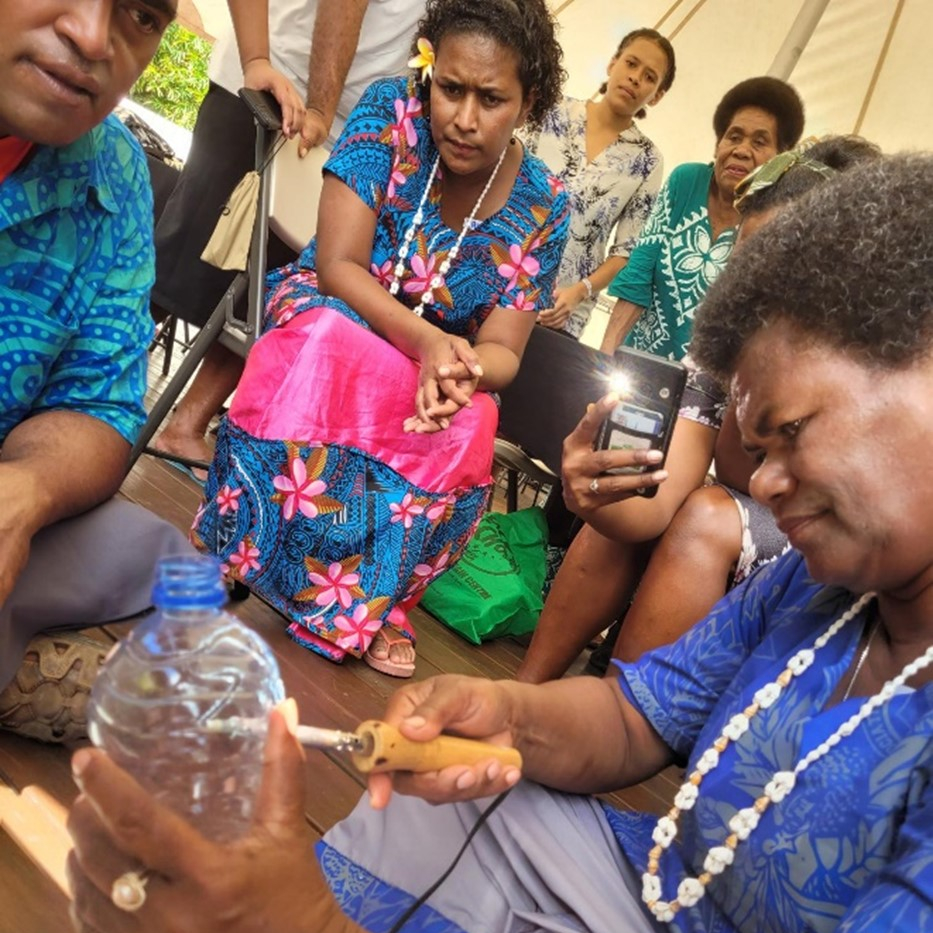
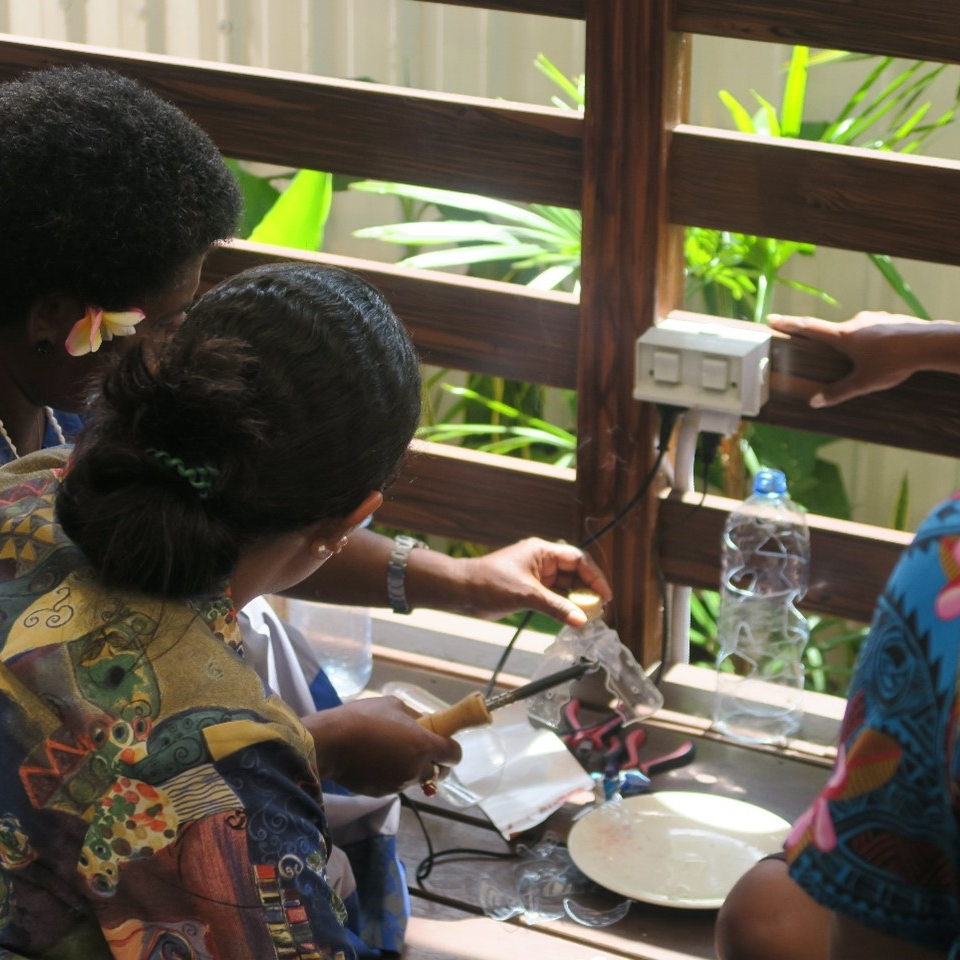
Women from Galoa village demonstrate plastic upcycling practices.
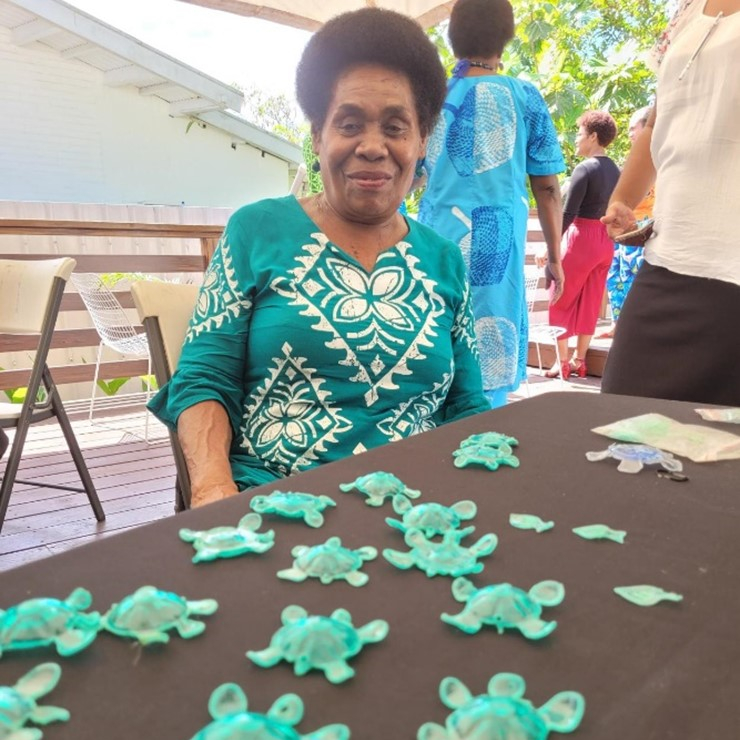
Woman from Galoa village displaying her upcycled plastic product.
The youth were able to capture this demonstration and knowledge sharing through photos and videos, and used this footage to show the women how they could elevate their work using digital skills and creating awareness on social media about their cause to reduce plastic waste, as well as marketing of their upcycled handicrafts. The women are now able to upload pictures of their handicrafts on a shared Facebook page to reach a wider audience.
In this first-of-its-kind learning exchange we learnt that women and youth are powerful agents of change and have great potential to inspire and influence behavioural shifts in their communities, and we must ensure they are included in the endeavor to end plastic pollution.
Did we influence transformative behavioural change?
While we recognize behavioural shifts do not happen overnight, we did see a positive shift in increased mindfulness on the use of plastics, with some youth expressing newfound interest in using plastic waste in creative ways to gain economic returns, while raising awareness on the negative impacts of plastic pollution on human heath, the environment and our oceans. We have yet to see if other organisations and schools will join the movement in playing a more active role in keeping plastics out of the environment and oceans, but we do know one thing—the journey to end plastic pollution has only just begun. It is going to take consistent efforts, advocacy, support for recognition of innovative local solutions, and working across multiple sectors to curb the global crisis —especially if we are to ensure each and everybody’s human right to a clean, healthy, and sustainable environment.
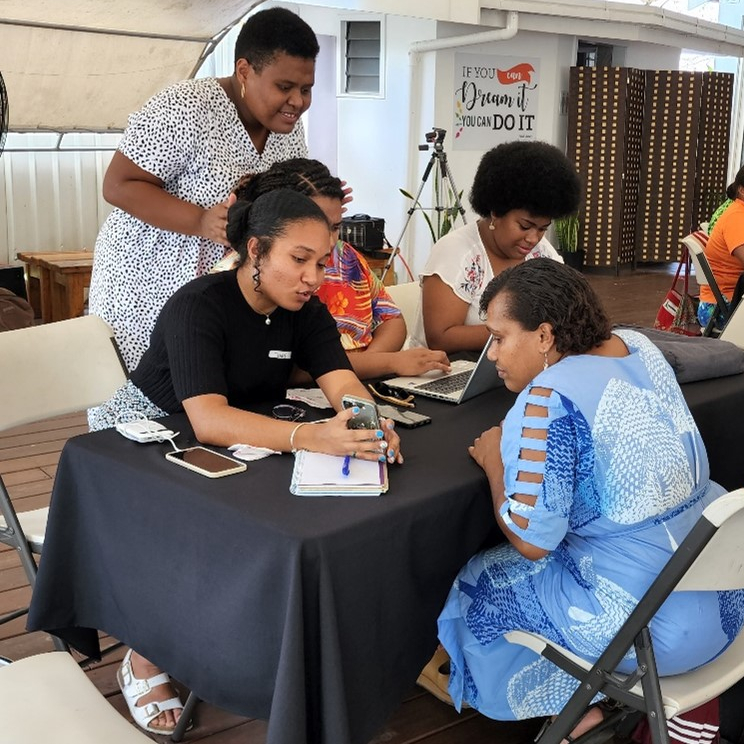
A youth participant shares digital marketing tips.
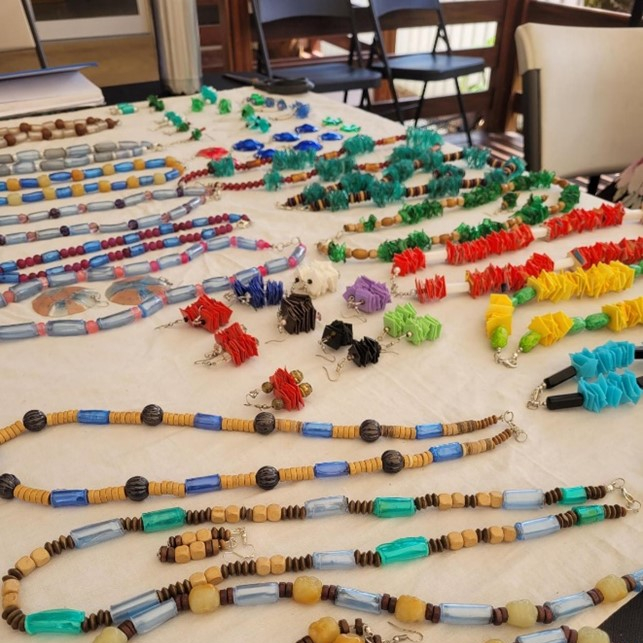
Upcycled plastic jewelry made by the women of Galoa village.
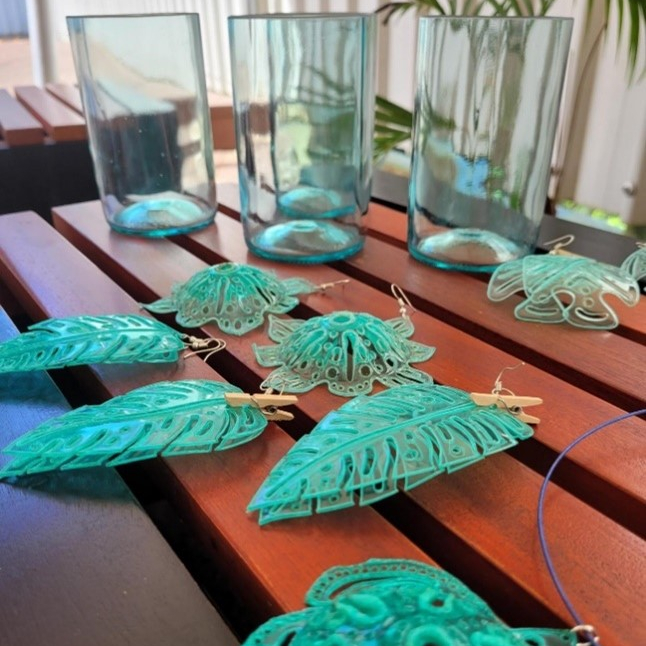
Designs made by plastics upcycling trainer, Warwick Marlow.
Acknowledgements:
Leilani Ahtack of the UNDP Pacific Office in Fiji.
The UNDP Pacific Office in Fiji would like to thank partners Pacific Tourism Organisation (SPTO), Ministry of Forestry, Ministry of Commerce, Trade, Tourism and Transport.
Special acknowledgement to participants from Sacred Heart College, Galoa village, the University of the South Pacific, Alliance for Future Generations - Fiji (AFG) for sharing their invaluable time, expertise, and insights.

 Locations
Locations
